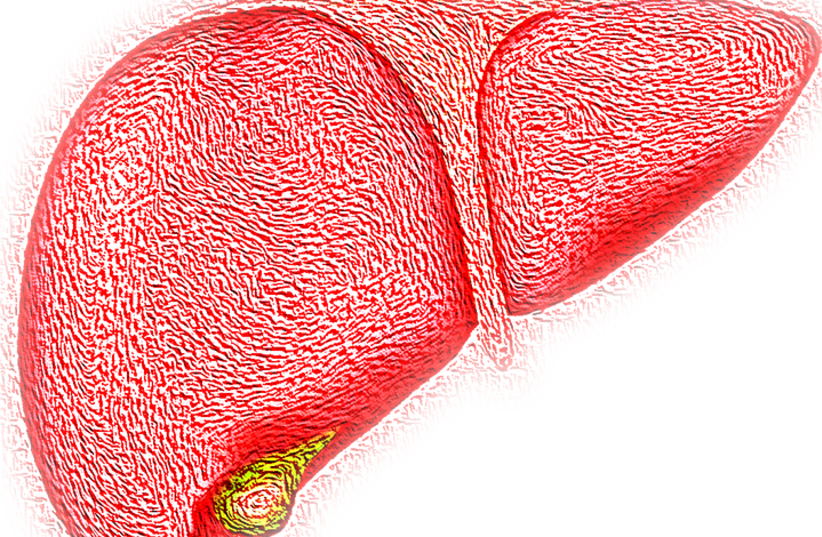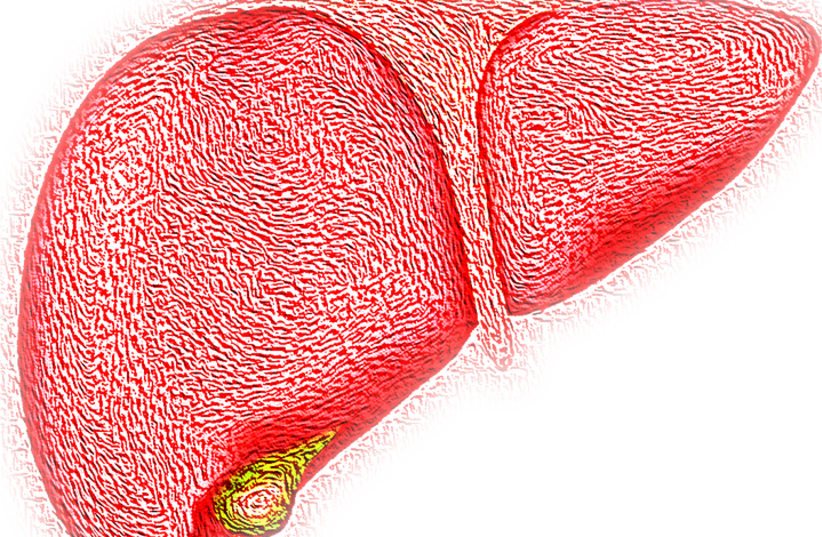
A subtype of immune cells have been found to play a role in the progression of metabolic liver disease, a new study from Israel’s Weizmann Institute of Science revealed.
The liver is an essential organ in the body and carries out a wide range of vital functions. However, it is very sensitive to food, and can be thrown into disarray by bad dietary choices and obesity.
An overwhelmingly common condition found among people with obesity is fatty liver, a metabolic condition caused by an excess of fat building up in the liver. This condition itself can be harmless and often have no special symptoms, and can be resolved through simple weight-loss. But for some who don’t lose weight or change their lifestyle, it can progress into a far more severe form called non-alcoholic steato-hepatitis (NASH), a condition involving liver-cell death and inflammation that can lead to life-threatening conditions like cirrhosis and liver cancer.
When studying the link between the liver’s immune system composition and the pathology of NASH, a team of Weizmann scientists led by Prof. Ido Amit and in collaboration with Mathias Heikenwaelder´s laboratory from the German Cancer Research Center (DKFZ) and the Center for Liver Diseases at Sheba Medical Center discovered the involvement of a certain subtype of immune cells. These cells, known as dendritic cells, are activated in the liver of NASH patients and helps the condition progress further.
Normally, these cells function by finding immune cues in organs and relaying this information to the T cells, which are important immune cells.
The scientists studied the development of this condition in laboratory mice and used new technology developed for single-cell RNA sequencing to study immune changes in the liver. Through this method, they discovered that a specific dendritic cell subtype, called type 1 or cDC1 for short, expands.
They further examined tissue taken from liver biopsies from patients between non-alcoholic fatty liver disease and NASH and saw that the cDC1 count correlated to how great the liver damage was.
if(window.location.pathname.indexOf(“656089”) != -1){console.log(“hedva connatix”);document.getElementsByClassName(“divConnatix”)[0].style.display =”none”;}
These findings, published in the academic journal Nature Medicine, have significant implications for the treatment of fatty liver disease and NASH.
“We know that the immune system has a role in protecting us from pathogens, but in recent years, it has been found to be involved in other diseases, including cancer, obesity, diabetes or even Alzheimer’s,” lead author Dr. Aleksandra Deczkowska explained in a statement.
“The healing potential of the immune system can be harnessed for treating these diseases, instead of targeting the disease mechanisms directly. This approach, known as immunotherapy, has already led to recent breakthroughs in cancer treatment, and we believe it will soon be extended to other medical problems, such as NASH.”
And as obesity is increasingly common in the Western world, and around 90% of people with obesity show signs of fatty liver, a potential treatment could help millions of people.




